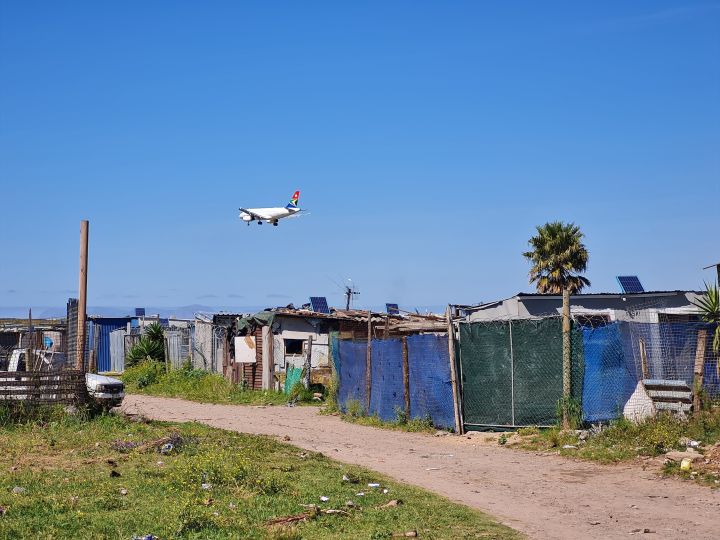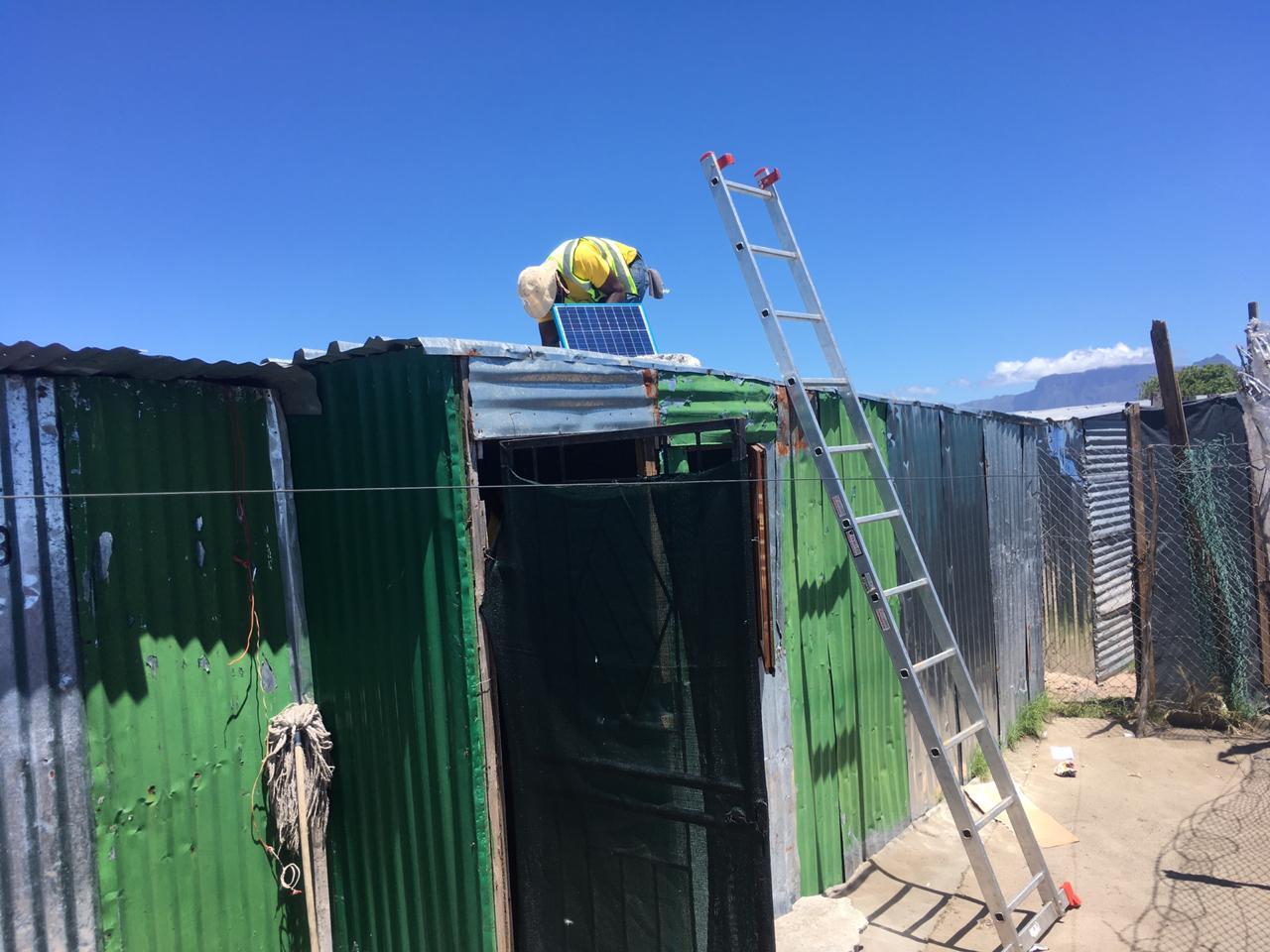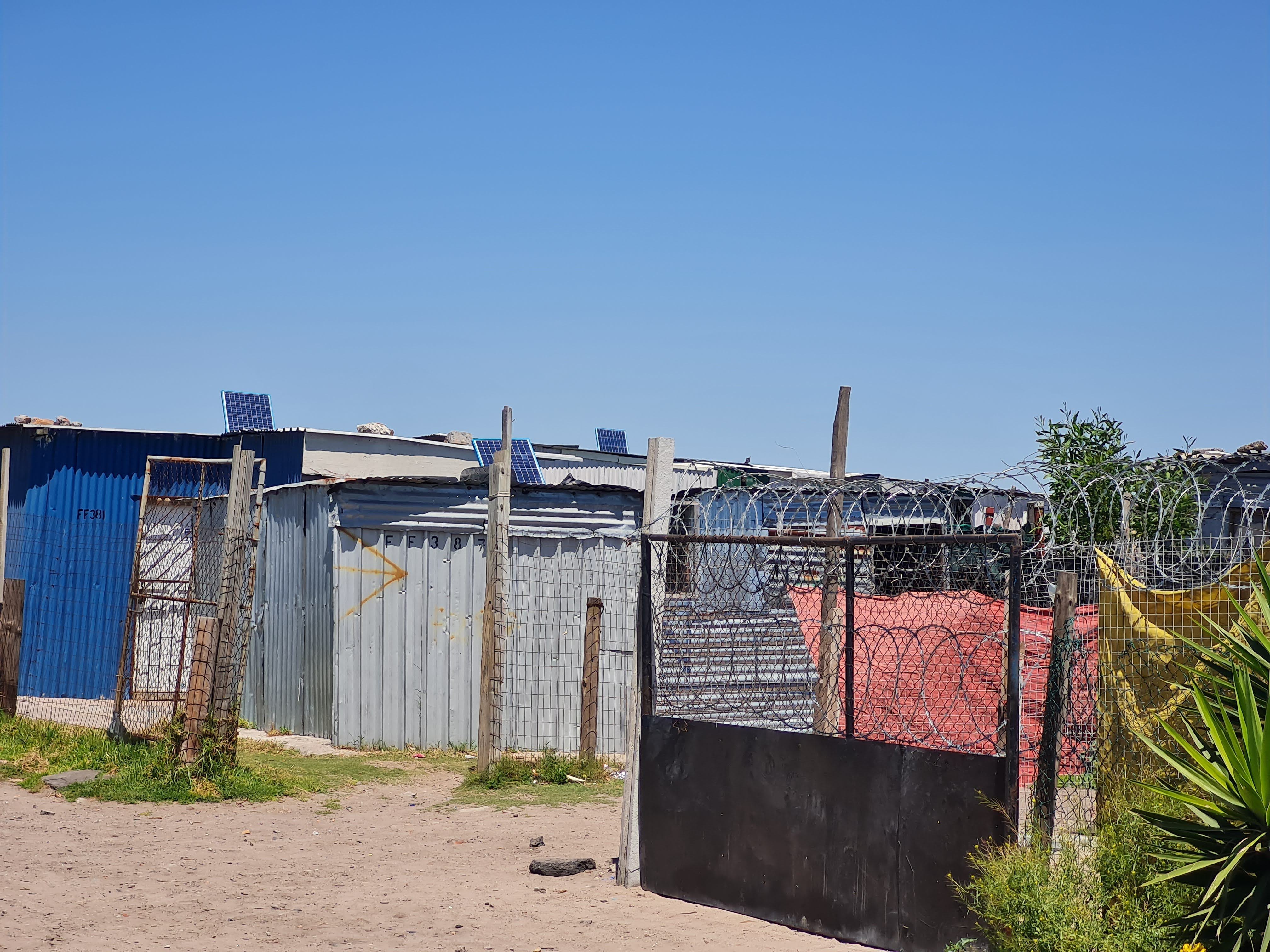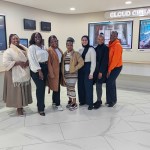SPONSORED CONTENT
Green voices at the grass roots

Together for implementation was a central theme of COP27 to encourage impactful climate action. Over the past year, the Friedrich Naumann Foundation has partnered with GreenCape to run various projects specifically aimed at supporting climate action at the grass roots, where collaboration and partnership is key to ensuring sustained success.
Alternative Service Delivery
One of the important questions that come up in terms of access to the “luxury” of domestic solar systems, is if it is actually an affordable option for all South Africans, given challenges like high unemployment, and the lack of infrastructure in informal settlements.
One example of how renewable energy can be a reality for low income communities is a project in Cape Town that has come about thanks to the generous support of Airports Company South Africa (ACSA) and other partners. With this funding, GreenCape’s Alternative Services Delivery Unit (ASDU), in partnership with The iShack Project (A project of SIIL), has been working with the communities of Malawi Camp and Freedom Farm since 2019, to provide alternative energy solutions that improve living conditions while they wait for formal housing.
“We started this project because we wanted to assist and enable the two communities’ energy needs,” said Buleni Veto, ACSA. “This is not our core business, so we partnered with GreenCape and others to design solutions based on the communities’ expressed needs.”
Since the implementation phase of the project started, and post an extensive mobilization phase, 585 solar home systems have been installed in Freedom Farm and Malawi Camp by June 2022.

Residents join the service voluntarily by paying a subsidised joining fee. Monthly, they end up paying less for the solar lighting than what they used to pay for the candles and paraffin. They can also now charge their cell-phones at home and power other low-energy appliances.
“Two packages are on offer. The basic package includes three LED lights with cell-phone charging plus extra energy capacity to add music systems and tablets. The upgraded package includes a 24-inch LED TV. All packages include basic maintenance support for a small monthly fee,” said Cisomo Banda, the iShack Field Operations Manager.
Prior to commencing the roll-out, the project team held numerous workshops with the community leaders and town hall sessions with the wider community in order to build a solid understanding of the offer and to establish a strong social contract to underpin the sustainability of the service. The project team worked with community leaders to facilitate the employment of enumerators and installers. The solar service has been set up as a durable utility service, rather than ‘drop-and-go’ infrastructure. Thus, ‘iShack Ambassadors’ have been recruited from the community; they receive ongoing training and support to continue marketing the service and, crucially, to assist clients with any maintenance needs.
Some residents have lived in these informal settlement areas for up to 30 years, without formal electricity infrastructure. This project has given them the opportunity to have a clean, safe, and affordable renewable energy source to get electricity in their homes. The project has improved households’ ability to be active citizens by contracting formally with the service, making regular co-payments, and thus securing access to ongoing maintenance support.
About 50 new jobs were created during the project, including enumerators and trainee installers. The iShack Project has established the foundations for a sustainable social enterprise related to the provision of energy to the communities which has now been in operation for almost two years.
GreenCape managed to secure additional funding from Wärtsilä and Friedrich Naumann Foundation to build on the successful foundation in Freedom Farm and Malawi Camp, generously supported by the Airports Company of South Africa.
The implementation partnership with The iShack Project, is central to demonstrate, at scale, a viable and financially sustainable public-private business model for the provision of incremental energy services to under-serviced communities.
The video case study aimed to showcase the ASDU model and the value of co-design with communities, namely in Freedom Farm and Malawi Camp, which has been made possible through the generous support of ACSA and the work of the The iShack Project team on the ground.
This project demonstrates that renewable energy can be a cost-effective and inclusive solution for all South Africans.
Community media amplify green voices at the grass roots
This project engages with grassroots media to celebrate and amplify the green economy efforts driven from people in their communities. The primary aim of this project is to support green economy “spin-off” job creation opportunities, working with community media entrepreneurs who, at grassroots level, are raising awareness of the green economy in their communities. These entrepreneurs are creating jobs in the green economy, and they are essentially promoting democracy through giving a platform for local “green voices”.
An interview with Sindile Mavundla, owner of Khaltsha Cycles, conducted by On the green couch podcast activations (a grass roots media initiative) is an example of the campaign series can be viewed online:
Celebrating Municipal Change Champions
Overstrand Municipality are the winners of the 2022 Municipal Green Economy Change Champions Showcase, for their innovative and sustainable project which outsources the operation and maintenance of their bulk water services facilities. These green economy pioneers were announced as the winners during an online event hosted by GreenCape, in partnership with the Friedrich Naumann Foundation for Freedom (FNF), showcasing green economy service delivery initiatives that are being rolled out at the municipal level across South Africa.
“The Friedrich Naumann Foundation is delighted to partner with GreenCape on this project for a second year running. After the success of last year’s showcase, which saw the City of Tshwane Metropolitan Municipality win with its beneficiation of sewage sludge project with Agriman, we knew this event needed to become an annual affair. We hope that the outstanding sustainability projects that were presented by municipalities inspire others, and ultimately leads to improved service delivery throughout the country,” said Cecelia Kok, Head of Research and Advocacy Projects, South Africa at FNF.
The judging panel consisted of local and international environmental and urban development experts representing National Treasury, Department of Science and Innovation (DSI), South African Local Government Association (SALGA), and Local Governments for Sustainability (ICLEI).
The 2022 finalists were:
- Overstrand Municipality: Outsourced the operation and maintenance of its bulk water and sanitation infrastructure to improve water service delivery in the community.
- City of Cape Town: Implements an Energy Management System that improves the quality of water from wastewater treatment plants while minimizing wasted energy.
- George Municipality: Undertakes an Electricity Wheeling Project that gives municipal customers alternative options to source electricity.
- uMhlathuze Local Municipality: Uses Drone technology to improve the management of non-revenue water and water losses.
- Nkomazi Local Municipality: Operates the Untum recycling buyback centre to divert waste from landfills.
These projects are all examples of how climate action is driven at a grassroots level, from both a private and public perspective, ensuring impact where it is needed the most. DM


















Comments - Please login in order to comment.